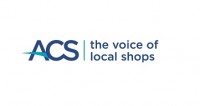Cycle to work scheme escapes cap but ACT warns Budget fails cycle retailers on business rates and imports
Posted on in Business News, Cycles News
The ACT has welcomed the Government's decision not to impose a cap on the cycle to work scheme, calling it "common sense prevailing" after weeks of speculation threatened a vital sales tool for cycle retailers.

The association said rumours of a new £1,000 limit on the scheme had caused unnecessary uncertainty for retailers and employees alike.

Jonathan Harrison
"The cycle to work scheme is a lifeline for thousands of workers who want to swap the car for the bike, and for the independent retailers who help them do it," said Jonathan Harrison, Director of the ACT. "Reimposing a cap would have been a backwards step at exactly the time we need to be encouraging cleaner, healthier travel. We're relieved the Chancellor has listened to the evidence and left the scheme alone."
Mr Harrison said a cap would have particularly harmed families needing e-cargo bikes to replace car journeys, older riders relying on e-bikes for longer commutes, and disabled employees requiring specially adapted cycles.
"E-bikes and cargo bikes cost more, but they're the tools that make cycling practical for people who couldn't otherwise manage it," said Mr Harrison. "A cap would have slammed the door on exactly the people we should be helping."
While the ACT welcomed the proposed cap remaining unchanged, Mr Harrison said many areas of reform still remain for the cycle to work scheme, including. high commission rates charged to retailers, the restrictive commute-to-work element, and access for those on minimum wage.
The ACT also welcomed wider Budget measures affecting independent cycle retailers, including permanent business rates relief for retail, hospitality and leisure properties, though Mr Harrison expressed disappointment at the delayed closure of the low-value import duty loophole.
"Independent bike shops have been hammered by business rates for years while online giants operate from warehouses on a fraction of the cost," said Mr Harrison. "Permanently lower multipliers for high street retail is exactly the reform we've been calling for. However, waiting until 2029 to close the import duty loophole is far too long. The USA closed their loophole in six months and Europe is acting next year. Why should UK bike shops endure another four years of unfair competition from overseas sellers dodging duties and safety standards?"
Andrew Goodacre, CEO of ACT parent company Bira, warned that the Budget's business rates reforms fell short of promises made by Government.

"The original proposals talked about reducing multipliers by up to 20p for smaller properties," said Mr Goodacre. "What we've actually got is a 5p reduction. The government has missed a real opportunity to tackle an unfair tax. Despite claims of support, many independent retailers will face bill increases of up to 30% next year. With the National Living Wage rising to £12.71 and another four years before import duty loopholes close, independent retailers are facing a perfect storm of cost pressures."
"It looks like our unit will cost us approximately £5,000 more next year." - See what fellow retailers think of this Budget and have your say over on Bira Connect, which you can access with your Bira webiste login.
Useful links
If you have any other queries please contact us.





















